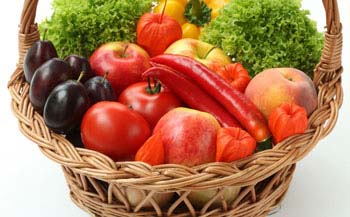
Foods to include
- Green, leafy vegetables: They have the most nutrients per calorie than any other food. They are rich in iron, calcium, potassium, and magnesium, as well as vitamins K, C, E, and many of the B Complex vitamins. Vitamin B in particular plays a vital role in managing PCOS symptoms.
- Fruits: They are rich sources of fibre, vitamins and minerals and are very helpful for managing PCOS. Keep in mind, though, to have fruits containing less amount of sugar, like cherries, plums, grapefruit, apples, pears, dried apricots, grapes, kiwi fruit, oranges and prunes.
- Coloured Vegetables: Brightly colored vegetables like bell peppers, pumpkin, carrots, artichokes and purple cabbage are rich sources of anti-oxidants and must be included in a PCOS diet.
- Fats: These healthy fats are found in nuts and seeds, oily fish, avocado and olive oil so be sure to incorporate those into your diet.
Foods to avoid
- Food that elevate the blood sugar levels should be strictly avoided. For e.g. White rice, mashed potatoes, rice cakes, muffins and cakes, bread, etc.
- Dairy Products: Milk leads to a rise in testosterone levels, which can further trouble the condition of PCOS.
- Soy Products: Soy has been shown to delay ovulation, and so should not be had by females who want to conceive.
- Bad Fats: Bad fats found in red meat, cooking oil, margarine and processed foods increase the chances of obesity and in turn, PCOS.















